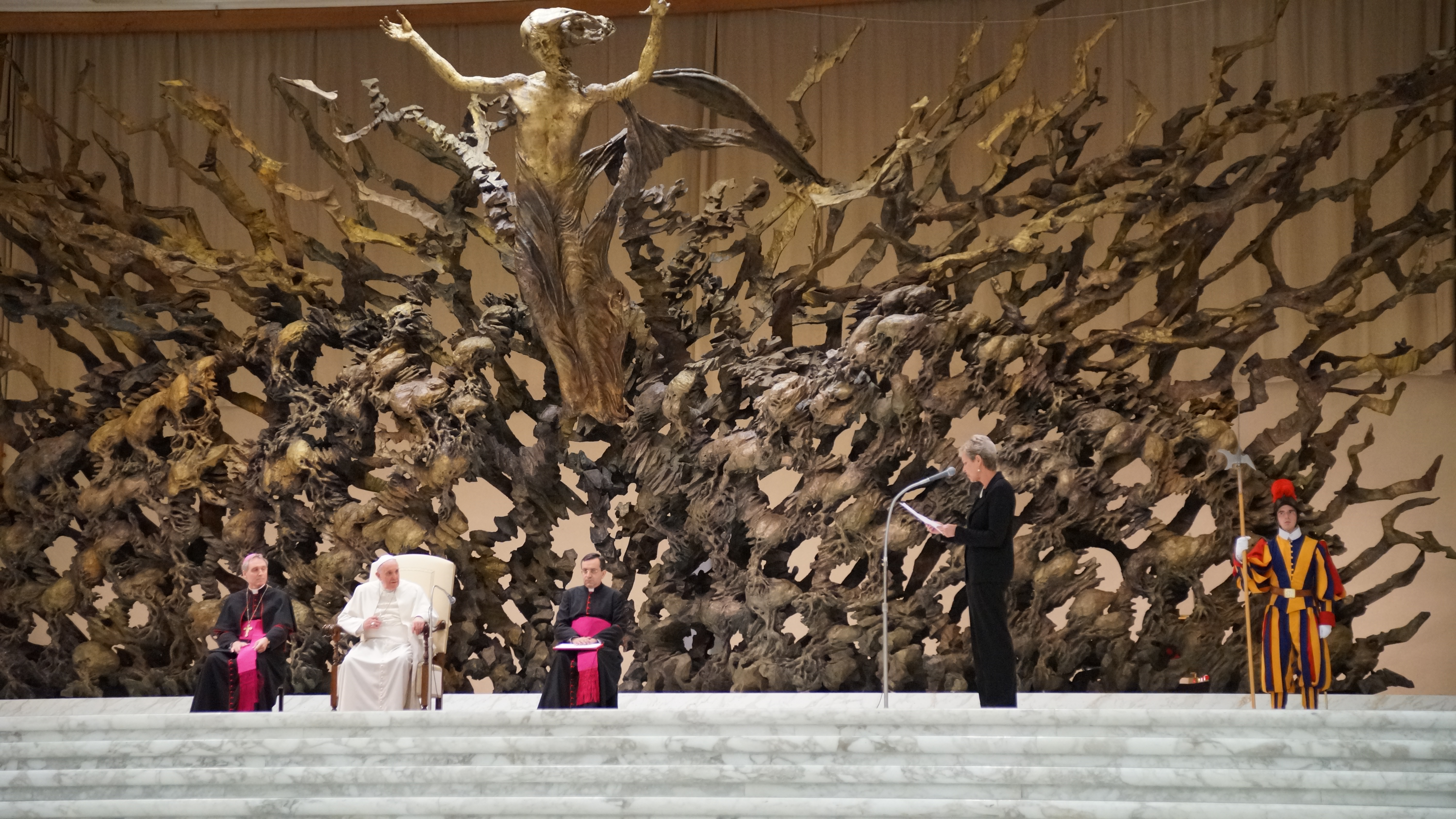Accountancy Profession Critical in Fight Against Fraud and Corruption
Two years ago, following the 2014 World Congress of Accountants in Rome, Pope Francis invited thousands of professional accountants to a private audience at the Vatican and challenged the global profession’s leaders to do more in the global fight against fraud and corruption.
As International Federation of Accountants® (IFAC®) President Olivia F. Kirtley (USA) today prepares to hand her office over to President-Elect Rachel Grimes (Australia), IFAC releases her open letter to His Holiness outlining all that the profession has done to support his call to action.
In his remarks, His Holiness said that in uncertain economic times, “There is a stronger temptation to defend one’s interest without concern for the common good, without paying much heed to justice and legality. For this reason everyone, especially those who practice a profession which deals with the proper functioning of a country’s economic life, is asked to play a positive, constructive role in performing their daily work.”
Ms. Kirtley’s letter stated, “I am pleased to report that following our meeting with you, IFAC has focused on intensifying the profession’s activities in several ways that we believe will have lasting impact in reducing both the supply and demand side of fraud and corruption.”
These efforts have been concentrated across three key fronts:
- Capacity Building: accelerating the profession’s long-term vision of increasing professional accountancy capacity in developing countries.
- Governance: greater participation in—and advocacy for—stronger governance across all organizations.
- Public Sector Financial Management: more transparent and complete public sector financial information, including use of International Public Sector Accounting Standards™ (IPSAS™).
“Serving the public interest is at the very heart of IFAC’s mission. Combatting fraud and corruption is clearly a public interest mission where our profession can provide valuable skills and experience,” Ms. Kirtley said.
“We also recognize that this many-decades old fight is one we can’t win alone. There is real need to join forces with other organizations to both make meaningful progress and yield faster results. Combatting this problem requires intense, coordinated action across all civil society institutions. The accountancy profession will continue to vigorously do its part.”
About IFAC
IFAC is the global organization for the accountancy profession dedicated to serving the public interest by strengthening the profession and contributing to the development of strong international economies. IFAC is comprised of more than 175 members and associates in more than 130 countries and jurisdictions, representing almost 3 million accountants in public practice, education, government service, industry, and commerce.


IFAC President Responds to Pope Francis' Call to Action
